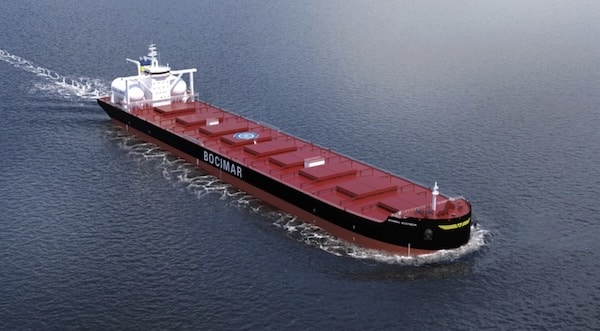Shipping Industry Faces Urgent Climate Challenges

The shipping sector, responsible for transporting about 80% of global trade, is grappling with the pressing need to reduce greenhouse gas emissions. The International Maritime Organization (IMO) has set ambitious targets to cut emissions significantly by 2030 and achieve net-zero emissions by around 2050. However, the path to these goals is fraught with uncertainties and challenges, prompting vessel owners and operators to make strategic decisions in an evolving landscape.
Navigating the Energy Transition
The maritime industry’s transition to alternative fuels and lower-carbon operations presents a host of operational, technical, and commercial challenges. As the sector adapts to these changes, new risks are emerging, including issues related to toxicity, reactivity, and bunkering complexities. The International Maritime Organization’s revised strategy aims to address these challenges, but the specifics of implementation remain unclear.
West of England, a leading protection and indemnity (P&I) club, recognizes its pivotal role in supporting members through this transition. The organization emphasizes the importance of knowledge sharing and risk guidance to help members navigate the complexities of the energy transition. One notable member, CMB.TECH, has already begun operating vessels with alternative fuels, providing valuable insights into the risks and considerations associated with early adoption.
West of England’s proactive approach is rooted in decades of experience in claims handling, pollution response, and operational risk management. Their internal specialists are equipped to assist members in discussions surrounding new fuel types, bunkering procedures, and incident prevention. This expertise is crucial for assessing and managing the implications of the energy transition, particularly in areas such as environmental risk and regulatory compliance.
CMB.TECH: A Case Study in Decarbonization
CMB.TECH stands out as a leader in the maritime energy transition, operating a diverse fleet of over 160 vessels, including bulk carriers, container ships, and offshore support vessels. The company is not only an early adopter of low-carbon fuels but also actively produces them. Their strategy emphasizes a dual responsibility: reducing emissions from shipping operations while considering the environmental impact of the cargoes they transport.
To this end, CMB.TECH is developing and deploying hydrogen and ammonia fuel solutions, focusing on hydrogen for smaller vessels and ammonia for larger ships. The company is also investing in research and development to expand hydrogen use in heavy-duty vehicles, further demonstrating its commitment to decarbonization across the supply chain.
West of England collaborates with CMB.TECH and other members to evaluate the risks associated with these new fuels. Key areas of focus include evolving liability and compensation frameworks for spills, crew safety, regulatory compliance, and considerations for P&I coverage. By partnering with pioneers like CMB.TECH, West aims to enhance its expertise and provide informed support to all members navigating the challenges of the energy transition.
